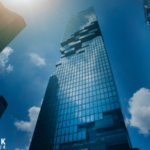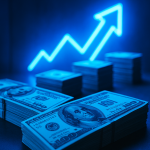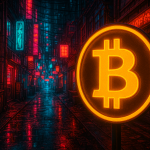Burning Man, an annual gathering in Nevada’s Black Rock Desert, has historically been a nexus for artists and tech entrepreneurs alike. The festival, celebrated for its principles of self-reliance and community support, attracts a diverse crowd each year. However, for the first time since 2011, the $575 tickets for this year’s event, which began on August 25, did not sell out beforehand. The slow ticket sales are attributed to unfavorable weather during last year’s festival and a reduced turnout from the tech industry, which is grappling with financial struggles and mass layoffs.
In the past, Burning Man sold out months in advance, with many attributing its popularity to its appeal among Silicon Valley elites. Last year, despite adverse weather conditions, tickets were sold out, indicating sustained interest. The tech industry, known for its high turnover and rapid innovation, has recently seen a decline in discretionary spending, impacting events like Burning Man. Moreover, there have been fewer high-profile tech figures attending this year, contrasting sharply with previous years when figures like Elon Musk and Larry Page were regulars.
Impact on Tech Industry Connections
A diminished presence of tech entrepreneurs at Burning Man signals a notable shift for the festival. Burning Man, which began in San Francisco in 1986 before moving to Nevada, has historically been a site for networking and business ideation. High-profile tech figures, including Elon Musk and Larry Page, have often used the festival as a brainstorming venue. The lack of these influential attendees this year may affect the festival’s role as a breeding ground for tech innovation.
The festival has influenced major tech decisions over the years. For instance, Google (NASDAQ:GOOGL)’s founders used the event for inspiration, even creating the first “Google Doodle” while attending Burning Man. The decision to hire Eric Schmidt as Google’s CEO was also influenced by his participation in the festival. Such significant decisions underscore Burning Man’s historical role in shaping tech industry trends.
Elon Musk and Tesla (NASDAQ:TSLA)’s Festival Connection
Elon Musk, a frequent attendee of Burning Man, has previously leveraged the festival for inspiration in his ventures. In 2022, he commissioned the artist Hunter Leggitt to create a sculpture that was displayed at the festival before moving to Tesla‘s offices in Palo Alto. Additionally, Musk’s journey to Burning Man in 2004 led to the concept of SolarCity, later acquired by Tesla. His absence this year may hint at shifting priorities within the tech industry.
Airbnb’s connections to Burning Man further illustrate the festival’s influence on tech culture. CEO Brian Chesky and co-founder Joe Gebbia have both attended the event, with Gebbia even aiding the acquisition of a Nevada ranch for the festival’s organizers. The “Airbnb open,” an event inspired by Burning Man, exemplifies how the festival’s culture has permeated tech companies, blending real-life experiences with technological innovation.
The reduced demand for Burning Man tickets this year indicates broader trends within the tech industry and its relationship with cultural events. Financial struggles and workforce reductions have impacted discretionary spending, leading to fewer tech entrepreneurs participating. This shift may lead to a reevaluation of how tech industry leaders engage with such events. Burning Man’s historical role as an innovation hub for the tech community underscores the significance of this change. Future iterations of the festival may see a different demographic, potentially altering its influence on tech culture.










